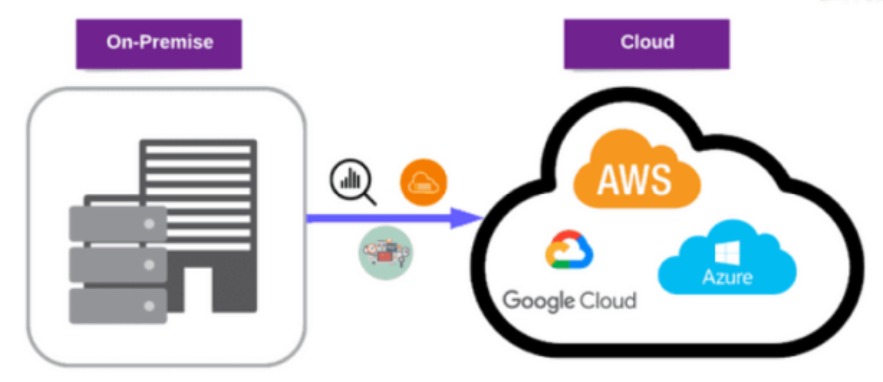
We specialize in migrating applications and data from on-premises to the cloud, which can offer many benefits, including scalability, flexibility, cost-effectiveness, and security. Migrating your network to the cloud is a complex undertaking that requires careful planning, preparation, and execution. To make an informed decision about moving to the cloud, you must first assess your existing systems and infrastructure, identifying strengths and weaknesses. You should then evaluate your business goals, processes, requirements, and expectations against the cloud services you are considering. This will allow you to define the scope, budget, timeline, and risks of the migration project, and select the right cloud vendor and model to meet your needs.
When transitioning from on-premises to the cloud, select the most suitable cloud model from the three main types: public, private, and hybrid. Based on your business objectives, resources, and readiness, select the migration strategy that best leverages the cloud’s full potential, minimizes costs and maintenance, and maximizes the benefits and innovation of cloud features and capabilities. As you migrate your data, applications, and services to the cloud, design your cloud architecture and configuration using best practices. We use a variety of tools, including migration tools, automation tools, and orchestration tools, to prepare and migrate your on-premises applications to the cloud, following the cloud provider’s best practices and guidelines.
We use network monitoring, analytics, and optimization tools to optimize your cloud infrastructure post-migration, ensuring that your network is operating correctly, your data and applications are accessible and secure, and your system performance and availability meet your requirements. Ongoing maintenance of your cloud infrastructure is essential to ensure that your network is up-to-date, patched, and in compliance with the latest standards and regulations.
Managed services providers take on the responsibility of delivering, monitoring, and maintaining your IT systems and processes, meeting your key performance indicators (KPIs) and service level agreements (SLAs), which are defined to measure quality and outcomes. We use our tech expertise to help businesses digitally transform, improving customer experience, operations, and competitiveness with new cloud, AI, data, and security solutions. We listen to customers expectations, understand their business needs, goals, and challenges, and then develop tailored, proactive, and value-added solutions to meet those needs. Managed services providers need to use automation to streamline processes, improve efficiency, and reduce costs in order to keep up with industry trends and challenges.

 Sampath Kumar Sabbineni (Sam) began his career as a software developer and gained valuable experience in various roles at prominent MNC’s such as Deloitte, Capgemini, and Amway over a span of 13 years. In 2016, he embarked on his entrepreneurial journey by joining Kraft Software Solutions in Kuala Lumpur, Malaysia, and has since expanded globally as a VKraft Software Services with branches in Singapore, India, Indonesia, and The USA. Sam provides a range of innovative Digital Solutions addressing challenges in the Digital Era. His vision is to lead at the forefront of the digital platform, offering products with unique functionalities across diverse sectors, including Healthcare, Insurance, Banking, Retail, Logistic, Environmental, and Manufacturing.
Sampath Kumar Sabbineni (Sam) began his career as a software developer and gained valuable experience in various roles at prominent MNC’s such as Deloitte, Capgemini, and Amway over a span of 13 years. In 2016, he embarked on his entrepreneurial journey by joining Kraft Software Solutions in Kuala Lumpur, Malaysia, and has since expanded globally as a VKraft Software Services with branches in Singapore, India, Indonesia, and The USA. Sam provides a range of innovative Digital Solutions addressing challenges in the Digital Era. His vision is to lead at the forefront of the digital platform, offering products with unique functionalities across diverse sectors, including Healthcare, Insurance, Banking, Retail, Logistic, Environmental, and Manufacturing.